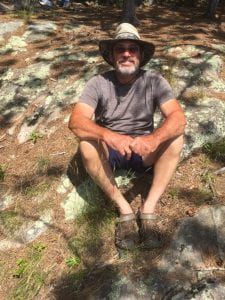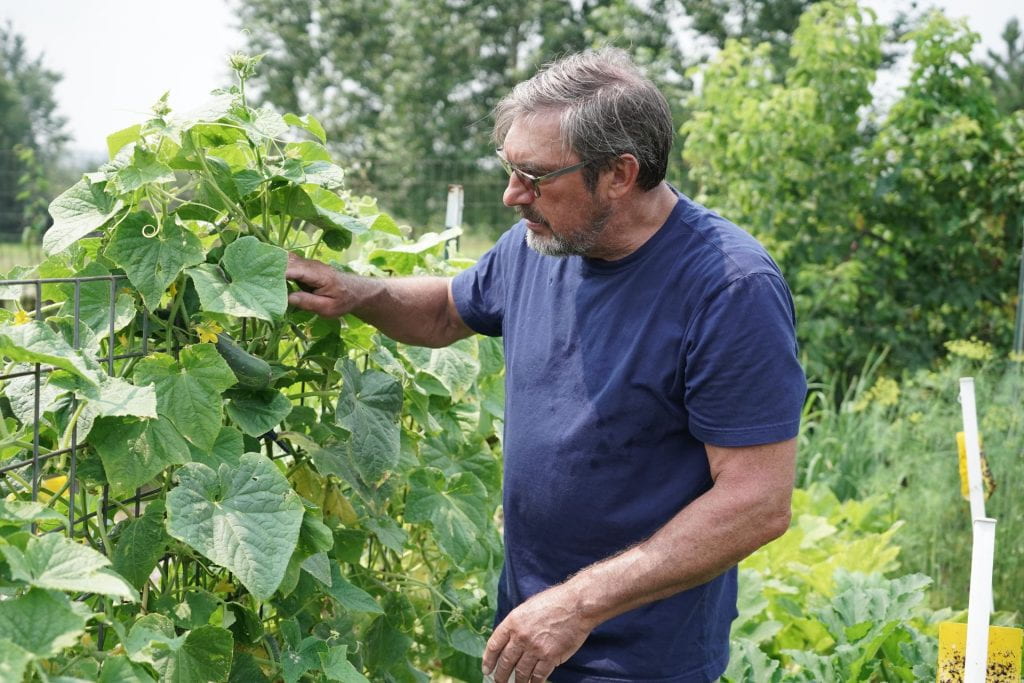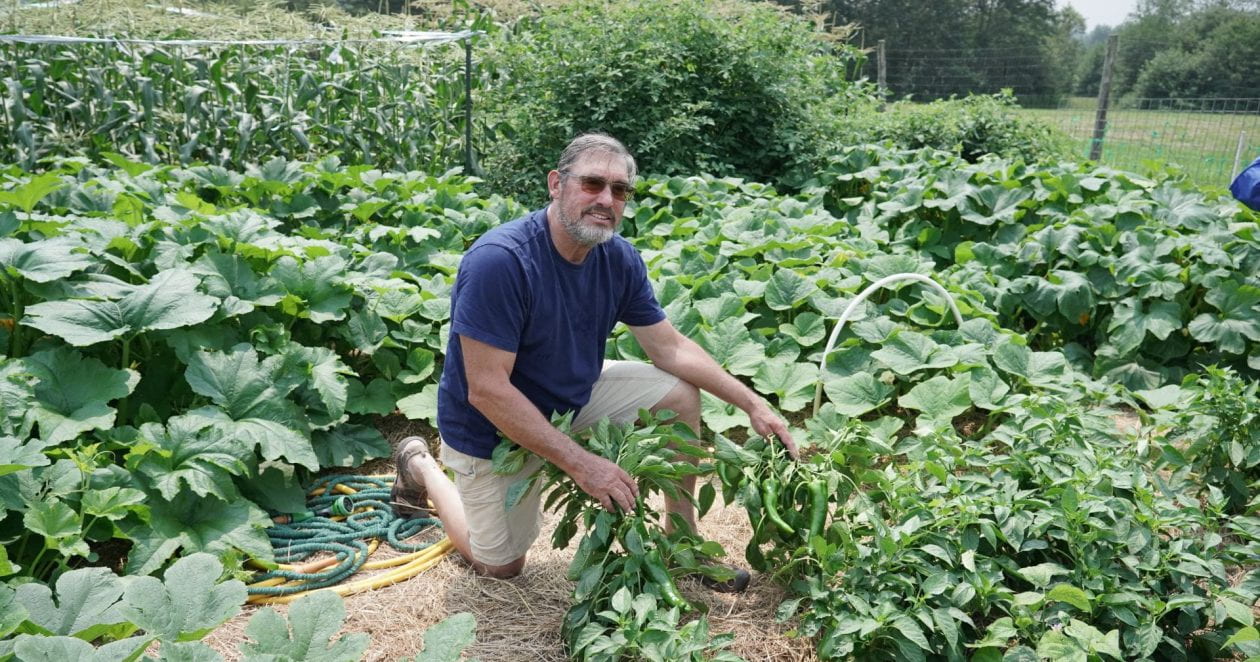With a new cohort of Master Gardener Volunteers finishing their training, we’d like to introduce them (AND YOU!) to the group of MGVs who have sustained this program for the last several years. First off, meet Ken Kogut!
Can you remember the moment you decided to become a gardener, or when you realized you had become one?
I grew up in a gardening family. I have many memories of gardening as a child. I also grew up in a farming extended family and all my relatives were gardeners, so I guess you can say that gardening is in my DNA. My first garden as an adult began after purchasing my first home outside of Saranac Lake in 1983. My wife thought I was crazy when I presented my primary new home requirement as a place where I could garden. Gardening in Saranac Lake is not easy; I quickly learned that I could get a frost every month of the year! Cool season gardening takes a lot of work and a willingness to really temper your expectations of what you can successfully grow.
What benefits do you gain from gardening?
A great question! There are so many positive things I get from gardening. First and foremost is the wonderful food my garden supplies nearly year round. My goal every year is to produce enough food so that we can be (somewhat) self-sufficient. Through canning, freezing, and cold storage of produce, we have now pretty much reached self-sufficiency. It gives my wife and me great pleasure to sit down for a meal and realize that nearly the entire meal has come from our property… But food is just one of many things that my garden contributes. Self-sufficiency, pride, peace of mind, relaxation, escape from the endless news cycle we live in, and the beauty of watching things grow are some of the other benefits my garden provides. Finally, gardening makes me feel in touch with the natural world around me and nature’s annual rhythm.
Why did you want to become a Master Gardener Volunteer (MGV)?
Being a Master Gardener Volunteer has allowed me to serve the public on a topic that I love to discuss. Public service was always a part of my career as an employee of the NYS Department of Environmental Conservation. After my retirement, becoming a volunteer to work with the gardening community was a way for me to give back after an enjoyable 34 year career.
In what ways do you serve as a MGV?
As a MGV my primary interest is working one-on-one with the public to help solve issues related to gardening, including the growing of berries and fruit trees. Before the pandemic, I enjoyed meeting folks at their homes to discuss their garden issues whereas now I answer emails and phone calls from our “Growline.” I also enjoy giving presentations on gardening and writing articles on the Fruition blog on topics like seed storing, growing garlic, and using raised beds.
What do you grow and what are your specialties in the garden?
This is a tough one to answer since I grow at least 30 different vegetable varieties. For many years I’ve successfully grown 3 varieties of potatoes, 3 varieties of corn, 3-4 varieties of tomatoes, 2 varieties of peppers, garlic, multiple varieties of squash and pumpkins, etc. It’s almost easier to say what vegetables I struggle with growing; number one on THAT list would be members of the melon family, such as cantaloupe and honeydew melons.
What are you learning about now in the gardening realm, and what do you want to learn more about?
What I’ve learned is that being an organic gardener can be very difficult at times. I find that being a successful gardener requires me to try new things and constantly search for information. For example, right now I’m researching the use of beneficial nematodes to control cucumber beetles and squash vine borers, both of which cause significant damage to my garden. Working with the public as a MGV requires me to research issues that the public is having with their gardens as well, which allows me to broaden my knowledge while helping others. It’s a win-win!

Ken Kogut has been a Master Gardener Volunteer since 2014. A retired NY DEC Natural Resource Supervisor and Wildlife Biologist, Ken now spends his time maintaining his garden, berry patches, and small orchard with a goal of living sustainably off his property. He particularly enjoys helping county residents solve their gardening issues, writing short articles for gardeners, and teaching new gardeners in Seed to Supper classes.
